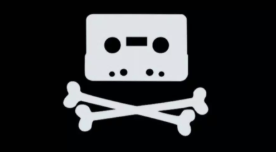 Under US copyright law, Internet providers must terminate the accounts of repeat infringers “in appropriate circumstances.”
Under US copyright law, Internet providers must terminate the accounts of repeat infringers “in appropriate circumstances.”
In the past such drastic action was rare, but with the backing of legal pressure, ISPs are increasingly being held to this standard.
ISPs Sued Over Repeat Infringers
Several major music industry companies including Arista Records, Sony Music Entertainment, Universal Music, and Warner Records, have filed lawsuits against some of the largest U.S. Internet providers. The list of targets includes RCN, which was sued last year.
The liability lawsuits are seen as a major threat to the ISP industry, as multiple companies face hundreds of millions of dollars in potential damages. This is not just a hypothetical threat, as the $1 billion verdict against Cox made clear.
The Cox verdict bolstered the confidence of the music companies to score big in cases against other ISPs as well. Before things get that far, however, they will have to overcome various counterclaims. Over the past several months ISPs including Charter and Bright House have countersued the rightsholders for sending deceptive anti-piracy notices. This week, RCN follows this trend.
RCN Strikes Back
The Internet provider filed its amended answers to the music companies’ complaint at a federal court in New Jersey, denying most copyright infringement allegations. At the same time, RCN countersued the music companies, the RIAA, and piracy tracking firm Rightscorp for unfair competition.
“RCN’s counterclaims are based on Rightscorp’s, the RIAA’s, and the Record Labels’ unfair and fraudulent business practices in generating and sending millions of unsupported emails accusing RCN’s customers of BitTorrent-based copyright infringement, while intentionally destroying the evidence necessary to determine whether any of those accusations were true,” RCN begins.
The ISP doesn’t deny that it received millions of notices from Rightscorp listing copyright infringements allegedly carried out by RCN’s customers. However, these claims are based on ‘flimsy’ evidence, much of which has been destroyed since. According to RCN, the record labels are trying to force ISPs into taking extreme measures without proper evidence.
“Face The Wrath of the RIAA”
“In a sane world, only actual, verifiable evidence of copyright infringement would provide a sufficient basis for an ISP to terminate the internet access of a customer. But that is not the world the Record Labels and the RIAA want to live in,” RCN writes.
“Instead of actually policing their copyrights — and identifying and proving claims of direct copyright infringement — Counterclaim Defendants seek to create an environment in which ISPs, including RCN, have no choice but to indiscriminately terminate the internet access of every customer accused of copyright infringement, or face the wrath of the Record Labels and the RIAA.”
RCN points out that it has a publicly published DMCA policy that describes the minimum requirements for a legitimate infringement notification. Among other things, this includes a PGP signature, to verify that the sender is legitimate, and a valid copyright registration number. Rightscorp’s notices lacked both.
Rightscorp’s Shoddy Practices
The ISP informed Rightscorp about these deficiencies and pointed the company to its DMCA policy, but that didn’t change anything. The notices simply kept coming in, and RCN could not verify whether they were accurate or not.
“The RIAA and the Record Labels have known all of this for years. Nevertheless, they have allowed Rightscorp to continue sending suspect emails accusing RCN’s customers of copyright infringement while destroying all of the evidence on which those accusations are based.
“Rightscorp’s process for detecting copyright infringement is a sham built on shoddy business practices, the willful destruction of evidence, and a cavalier approach to — if not outright disregard for — the truth.”
Dubious Settlement Demands
Verification of copyright infringement notices is crucial, RCN points out, also because Rightscorp included settlement demands. This is a controversial practice, even among copyright holders.
RCN’s counterclaim cites emails where employees from Sony Record Labels discussed Rightscorp’s efforts “to milk consumers,” expressing concern that “[t]o the average user, it looks like us” and asking if there is “any way to block this activity if we don’t support and don’t benefit.”

However, these same copyright notices are now being used as ammunition against ISPs, including RCN. According to the ISP, Rightscorp wasn’t picked as a partner because its evidence is great, but simply to gain leverage over ISPs and pressure them to disconnect subscribers.
Accept the New Copyright Regime, or Else
“The unspoken threat is RCN’s reality: accept the new copyright regime or face the cost and burden of defending against a protracted secondary copyright infringement lawsuit seeking vast sums of damages.”
The counterclaim accuses the record labels, RIAA, and Rightscorp of unfair and fraudulent conduct amounting to unfair competition under California’s Business and Professions Code. Unlike counterclaims from other ISPs, there is no allegation of sending false notices under the DMCA.
The end goal is the same, however. By casting doubt over the evidence at the basis of the lawsuit against it, RCN hopes to turn the tables and come out as the winner in this legal dispute.
—
A copy of RCN’s first amended answers and the counterclaim against the music companies, the RIAA, and Rightscorp, is available here (pdf)





